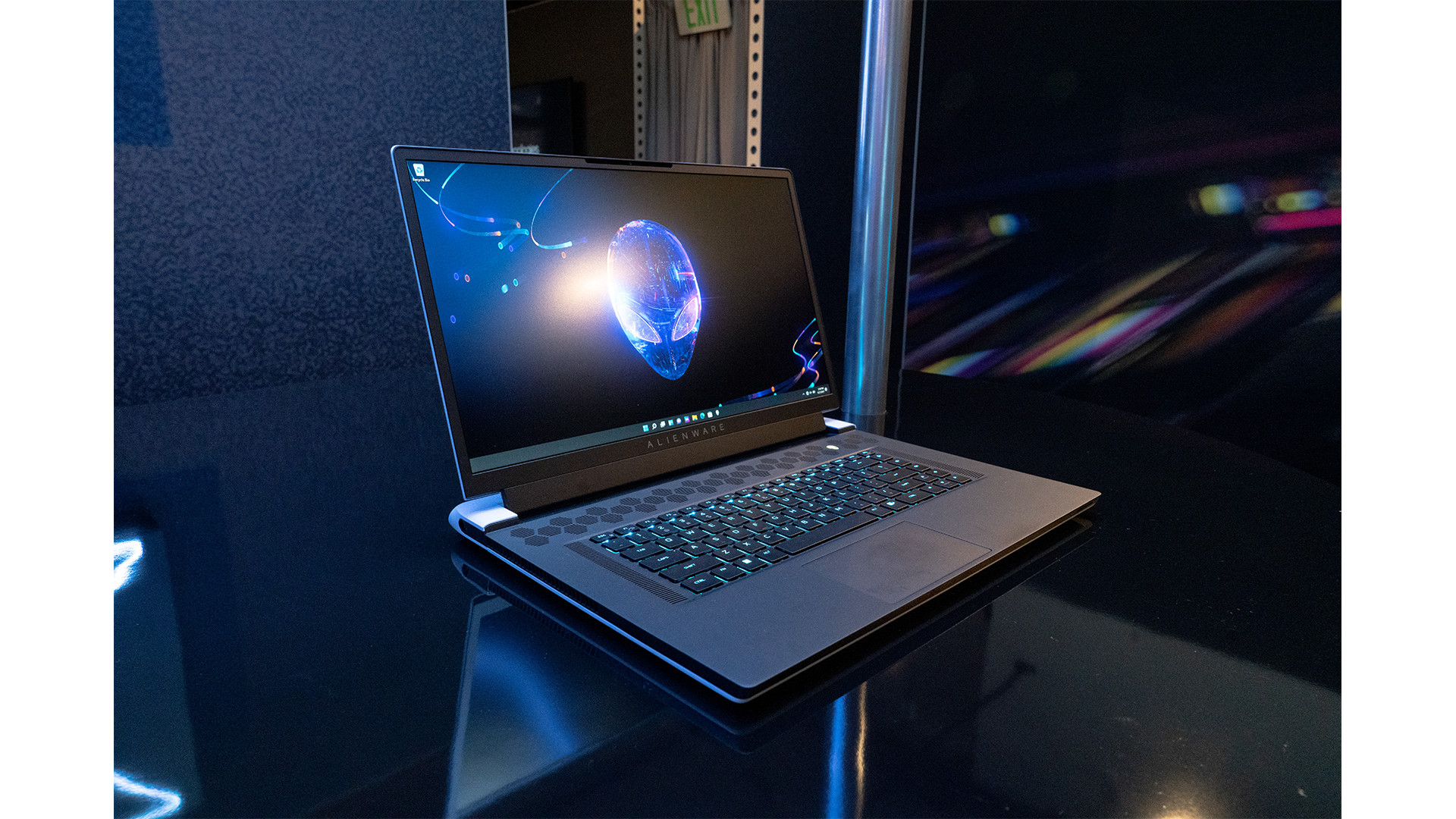Alienware launches gaming laptops with fast 480Hz displays, and we have questions
Dell targeting the niche competitive gamer audience

Sign up for breaking news, reviews, opinion, top tech deals, and more.
You are now subscribed
Your newsletter sign-up was successful
Alienware breaks through the refresh-rate ceiling as its new m17 R5 and x17 R2 gaming laptops come with the industry’s first 480Hz displays.
Admittedly, it’s tricky to conceptualize what a 480Hz display even looks like in action. Dell describes what this tech brings to the table and it all sounds impressive. The company claims these displays will bring a “multitude of gameplay benefits…” In-game animations will be made smoother, system latency will be lowered, and ghosting will be reduced. Ghosting, for those who don’t know, occurs when a game runs at such a high speed that the monitor can’t keep up and causes afterimages to appear. It’s an annoying problem and any feature that reduce it is a big plus.
In addition to the 480Hz refresh rate, the laptops’ displays come with Dolby Vision for a wider range of color and contrast and ComfortView Plus for reducing eye strain. However, the unheard-of refresh rate comes at the cost of resolution as it’s only available on the Full HD (1920 x 1080) display. The m17 and x17 do have an Ultra HD (3840 x 2160) display option, but the refresh rate drops to 120 Hz which is still decent.
Hardware choices
With regard to other hardware choices, the m17 R5 laptop offers more variety.
As its most optimal, the x17 R2 offers a 12th Gen Intel Core i9-12900 HK processor, NVIDIA GeForce 3080 Ti graphics card, 64 GB of RAM, and a 4 TB SSD. There are options for less memory, smaller storage capacity, or other GeForce RTX 30-series GPUs if you’re looking to lower the price tag.
The m17 R5 leans more towards AMD hardware. For the CPU, you have a choice between a Ryzen 7 6800H or Ryzen 9 6900HX CPU. For graphics cards, there are the Radeon RX 6700M and Radeon RX 6850M, but you can choose to have one of four GeForce RTX 30-series GPUs, instead. Memory and hard drive options are the same. For RAM, you can go from 16 GB up to 64 GB. SSD choices range from 512 GB to a maximum of 4 TB.
On top of the 480Hz display, the m17 R5 has a suite of AMD software called AMD Smart Technologies that aim to further enhance the gaming experience. The suite includes AMD SmartAccess Graphics which changes how a game renders graphics for better battery life and reduced latency, and Smart Access Memory to allow the CPU to have unfettered access to the GPU.
Sign up for breaking news, reviews, opinion, top tech deals, and more.
However, certain AMD features are only available on select models. For example, if you want Smart Access Graphics, you’ll need to purchase an m17 laptop with the Ultra HD 120Hz display and one of the Radeon graphics cards.
Both laptops are available for purchase on Dell’s website. The m17 starts at $1,599.99 while the x17 laptop starts at $2,249.99. But what’s strange is the 480Hz display option, the big draw for these laptops, is not available at the time of this writing. The highest refresh rate option is 360Hz.
We reached out to Dell and asked when the 480Hz display option will be made available. We’ll update this story if they ever respond.
Analysis: For a niche audience
So, which of these laptops you should get? That depends on what kind of gamer you are. A 480Hz display is certainly impressive, but only if you're an esports player or someone who spends hours playing video games. The average person probably won’t be able to tell the difference between a 480Hz or a 120Hz display. The details are minute.
That isn’t to say these Alienware laptops aren't worth having. They’re top-of-the-line models, but for a very specific audience. An esports player will appreciate the assurance that frames won't drop mid-game as it can mean the difference between winning or losing. But the average gamer probably isn't interested in frame data; they just want to play.
If you’re interested in a gaming laptop that performs well and is cheap, we recommend checking out our list of low-price gaming laptops for July 2022.

Cesar Cadenas has been writing about the tech industry for several years now specializing in consumer electronics, entertainment devices, Windows, and the gaming industry. But he’s also passionate about smartphones, GPUs, and cybersecurity.